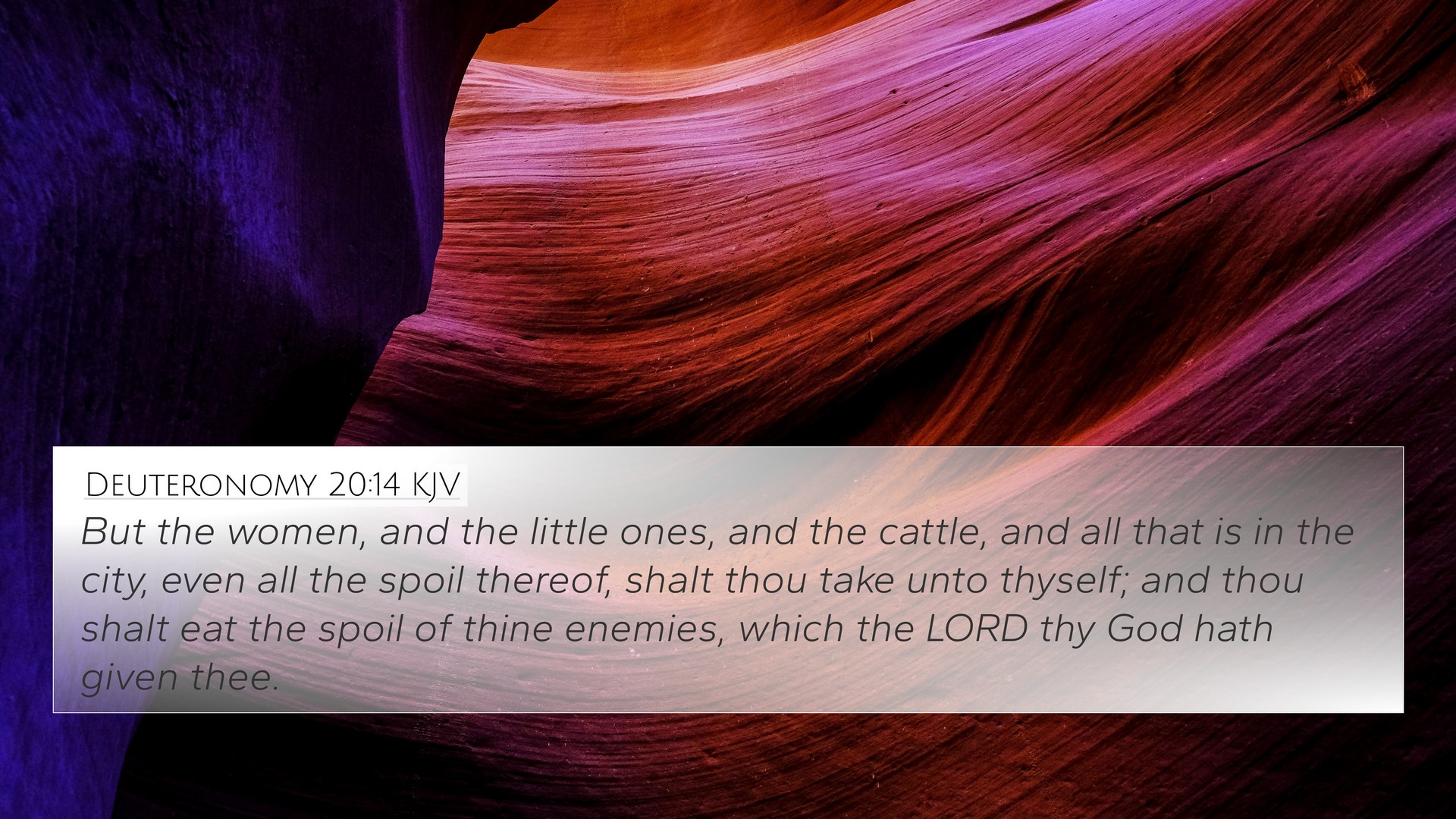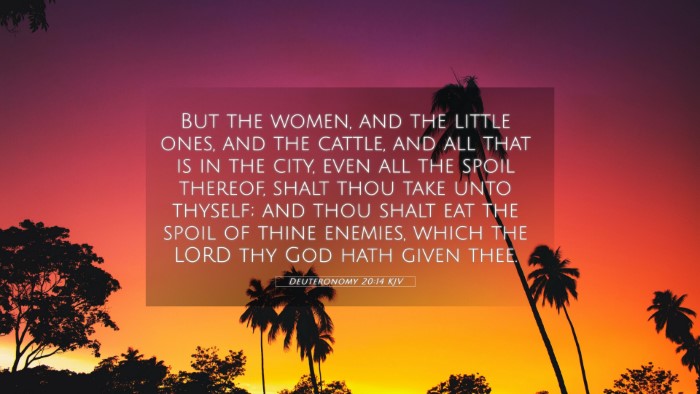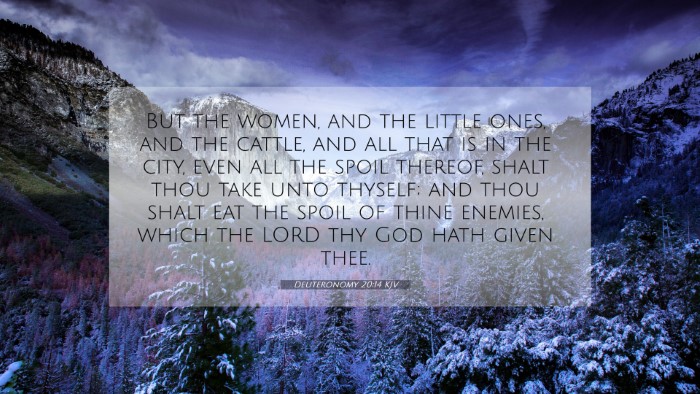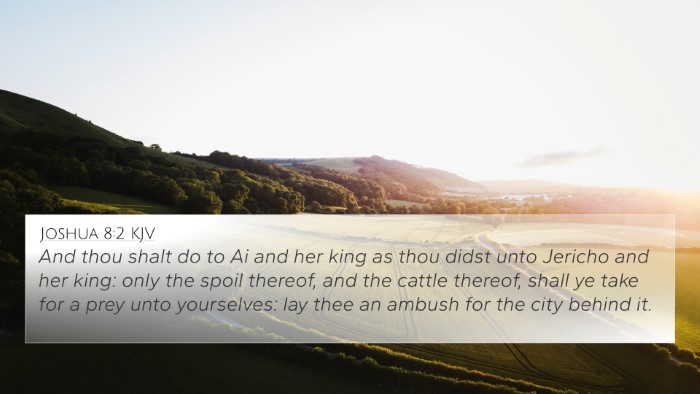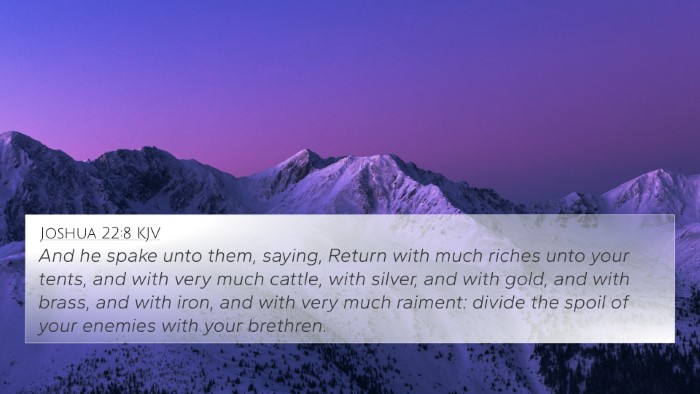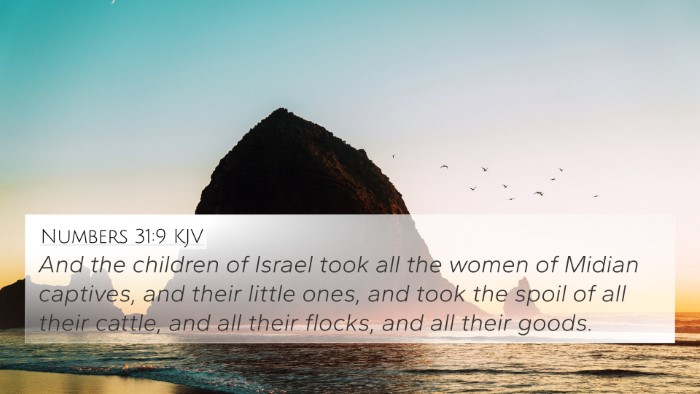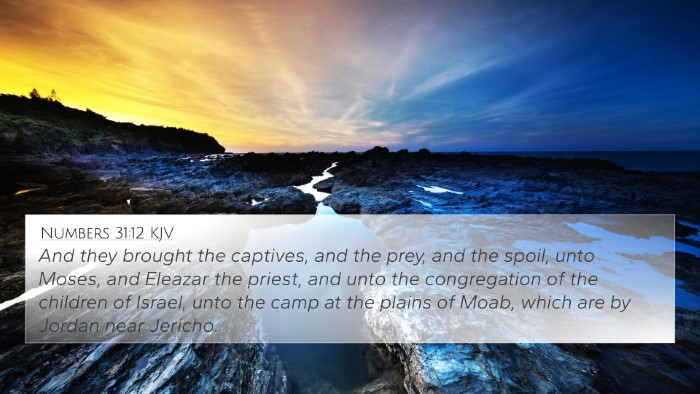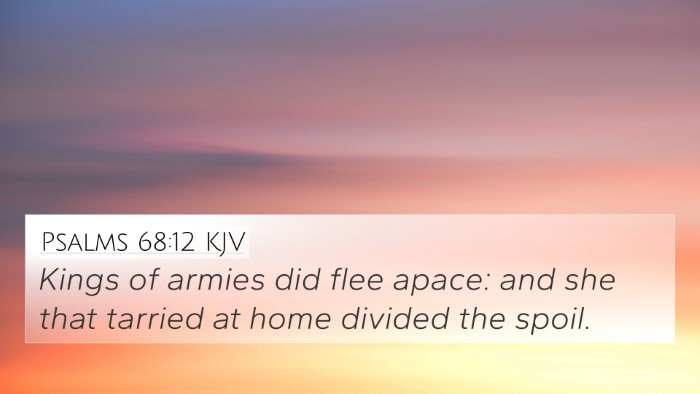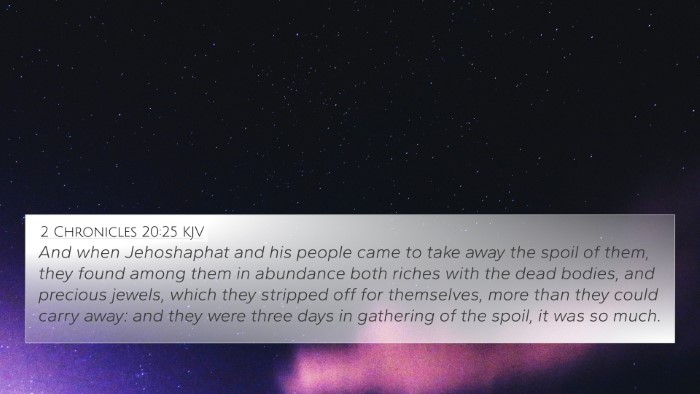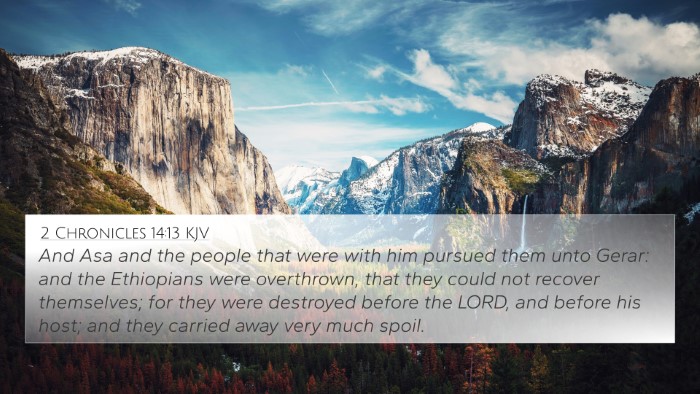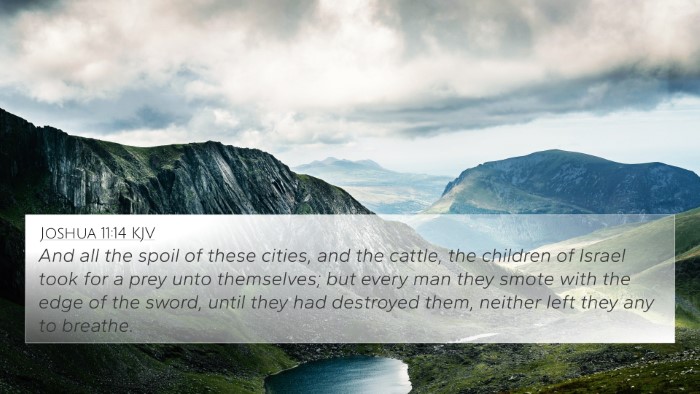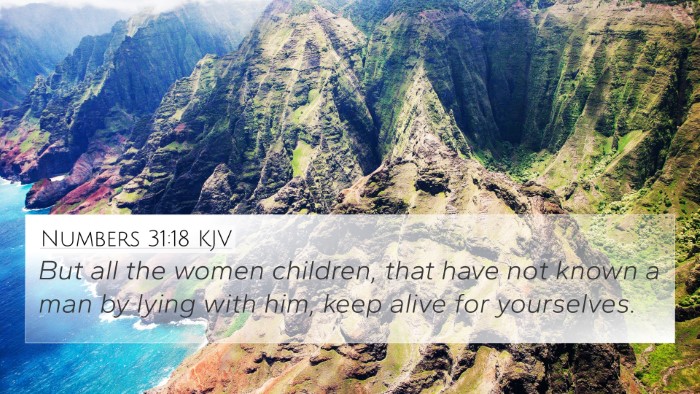Understanding Deuteronomy 20:14
Bible Verse: Deuteronomy 20:14
“But the women, and the little ones, and the cattle, and all that is in the city, even all the spoil thereof, shalt thou take unto thyself; and thou shalt eat the spoil of thine enemies, which the LORD thy God hath given thee.”
Verse Summary
This verse addresses the spoils of war in the context of Israelite conquest. God permits the taking of captives and goods from the enemy city but places restrictions on whom the soldiers are allowed to kill and whom they can spare.
Commentary Insights
In examining Deuteronomy 20:14, several commentators provide insights that connect this verse with broader Biblical themes and other scriptures.
-
Matthew Henry:
Henry suggests that this passage illustrates God’s provision for His people. The command to spare non-combatants reflects God’s mercy and offers practical sustenance to the Israelites in warfare.
-
Albert Barnes:
Barnes emphasizes that this directive about the spoils signifies God’s intention of ensuring the wellbeing of the Israelite community. It points towards the just application of warfare, highlighting that the spoils are granted by divine decree.
-
Adam Clarke:
Clarke notes that the inclusion of women and children in the spoils serves to express a degree of compassion amidst the harsh realities of ancient warfare. He interprets this command as a strategy to prevent the full annihilation of the enemy’s line and to integrate them into Israelite society after surrender.
Cross-References and Thematic Connections
This verse can be cross-referenced with a number of other passages, highlighting connections between Biblical texts and themes:
- Numbers 31:9: Discusses the taking of captives after a battle.
- Deuteronomy 3:7: Provides context about the spoils taken from conquered lands.
- 1 Samuel 30:19: Describes the sharing of spoils among David’s men and their families.
- Joshua 8:2: Refers to the spoils taken in the conquest of Ai.
- Jeremiah 40:10: Talks about the survival of captives and their possessions post-war.
- Ezekiel 39:10: Mentions the gathering of spoils after a decisive victory.
- Luke 6:35: Illustrates God's merciful nature in comparison to the treatment of enemies.
Bible Verse Parallels
Exploring parallels can deepen the understanding of Deuteronomy 20:14:
- Biblical Mercy: Similar to Luke 6:35, which stresses being merciful.
- War Ethics: Tied to the ethical considerations of warfare in the Bible.
- Divine Provision: Reflects God’s continuous provision for those He leads, as seen in Philippians 4:19.
Tools for Cross-Referencing
To fully comprehend the connections and comparisons within scripture, consider utilizing:
- Bible concordance for looking up themes and topics.
- Cross-reference Bible study methods for deeper analysis.
- Comprehensive Bible cross-reference materials for thorough exploration.
Finding Cross-References
When studying Bible verses, it’s vital to learn:
- How to find cross-references in the Bible effectively.
- Identifying connections between Old and New Testament verses.
- Detailed cross-referencing between Gospels for comparative analysis.
Conclusion
Deuteronomy 20:14 provides a lens through which to explore themes of mercy, divine provision, and the ethics of warfare in the Bible. By engaging with this verse through cross-references and commentary insights, believers can deepen their understanding of God’s character and intentions for His people.
